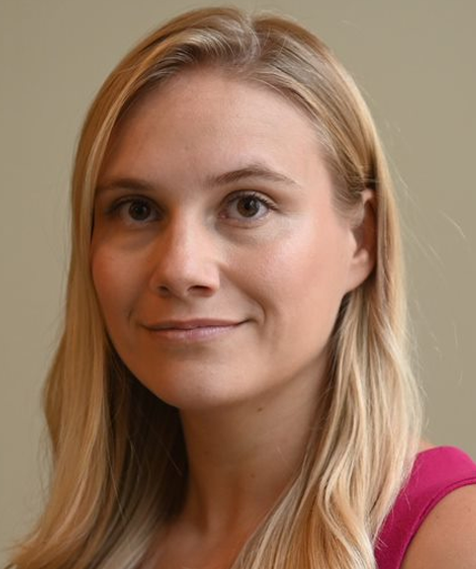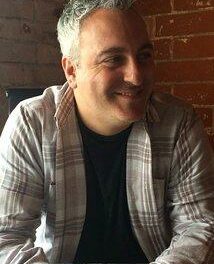
Courtesy of Rachel Harmon
Content warning: This piece contains references to sexual violence.
Visiting Professor of Political Science at Oxford College Rachel Harmon has come a long way since her introduction into academia as a first-generation college student. In an interview with The Emory Wheel, Harmon recounted her winding journey to becoming a professor.
“I felt like I didn’t have a voice to reach out for help, and I didn’t deserve to,” Harmon said, recalling her college experience.
“First-generation college student” refers to students who are the first in their family to receive a bachelor’s degree from a four-year college, according to the Center for First Generation Student Success. Harmon attended Middle Tennessee State University (MTSU) as a first-generation college student. Harmon dedicated 10 years to earning her degrees, ending with a doctorate in political science from Emory University.
The path to Emory
Harmon talked about first-generation students’ difficulties in deciding on a career path. She said she has always been interested in international security and conflict, which led her to major in international relations during her time at MTSU. However, she said her family had other ideas about what a successful college path looked like.
“My dad especially would ask, ‘Why don’t you go to law school?’ and, ‘Why are you not pre-law?’ because that was seen as a pathway to a really good career, to be a lawyer,” Harmon said. “That happens for a lot of first-gen students where their parents might not realize there’s a wide range of options that can lead to really fulfilling lives.”
In Harmon’s case, her humanities major led to meaningful and viable working opportunities in education and human rights. She recalled her internship and volunteer experiences, which helped her peek inside the world of international relations. Harmon applied for a grant from MTSU for a project on refugee rights and immigration in her junior year, which helped her focus her interest in human trafficking. During college, she also taught English as a second language to immigrants in the United States.
After graduation from her masters program at MTSU, she moved to Mexico City for a practicum, expanding her knowledge in international organizations.
“I realized I could combine all those things of working with students, teaching people, talking about these topics that I’m passionate about and also get to do research,” Harmon said. “Being a professor is the best choice.”
Although it took her more than 10 years to go through higher education, Harmon said she realized that she didn’t need to go at the same pace as everyone else. She said trying out opportunities and focusing on herself helped her establish a career in academia.
Combining her passion for human rights and her experience as a first-generation student, Harmon now runs Everwell International Scholarship, a scholarship for survivors of human trafficking.
Encountering challenges
Harmon was homeschooled before she went to community college and eventually transferred to MTSU.
“I didn’t even have the typical high school experience, so when I started college classes, I really didn’t know anything about school systems at all,” Harmon said.
The difficulty of identifying as a first-generation student added to her challenges. The definition of “first generation” is usually nebulous, and Harmon said she didn’t initially know whether this identity applied to her.
“The first time I heard it, I thought it meant that you were the first generation of an immigrant family,” Harmon said. “So I was like, well, that’s not me.”
Being a first-generation student presented challenges to Harmon, particularly in terms of seeking help when she suffered from sexual violence. Harmon said she struggled to communicate her concerns to administrators, both as a victim of sexual violence and as a person with autism.
“I sometimes didn’t know how to interact the same way that I would see peers interacting,” Harmon said. “And I didn’t know how to ask for help, really, or how to advocate for myself.”
These difficulties were compounded by the confusion she encountered as a first-generation student. Eventually, Harmon decided to drop out of college.
Seeking support
Summoning courage, she re-enrolled in college soon after leaving. Although Harmon said this transition was “one of the hardest things she’s ever done,” she said that faculty was “incredibly understanding and kind.”
Her professors connected Harmon with helpful campus resources and encouraged her to apply for financial grants. Because of her experience, Harmon said she places an emphasis on connecting her own students with conversations and support resources on campus.
“The main thing I would suggest for first-gen students is to use all of the resources that are at the Uuniversity. Apply for things that you think you might not get — apply anyways. Show up to events, take advantage of all the things that Emory has, not only for first-gen students,” Harmon said.
She recommended first-generation students at Emory seek out groups like the Emory Identity Spaces Project and Emory 1915 Scholars Program.
“Try for all the things, even if you’re not sure, because every once in a while it will work out better than you expect,” Harmon said.
If you or someone you know experienced sexual assault, you can access Emory’s Title IX resources at https://equityandcompliance.emory.edu/title-ix/index.html and the Office of Respect at https://respect.emory.edu/ or their hotline 24/7 at (470) 270-5360. You can reach the RAINN National Sexual Assault hotline 24/7 at (800) 656-4673 or https://hotline.rainn.org/online. You can reach the Atlanta Grady Rape Crisis Center crisis hotline 24/7 at (404) 616-4861 or gradyrapecrisiscenter@gmh.edu and the Decatur Day League Sexual Assault Care and Prevention crisis hotline 24/7 at (404) 377-1428.
Amiee Zhao is from Shanghai, China. At the Wheel, she is Emory Life editor and a writer for multiple sections. Outside of the Wheel, she enjoys traveling and reading non-fiction. She is also involved in OxBroadway and Autism Advocacy Organization.






